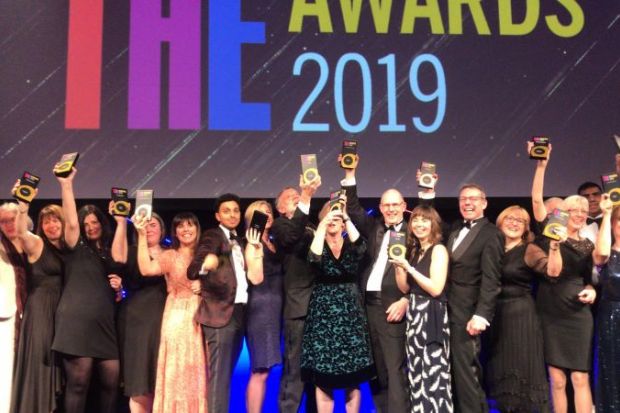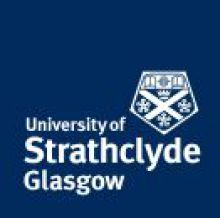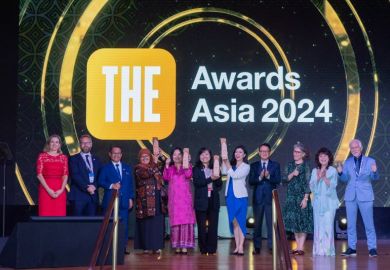Winning the Times Higher Education University of the Year award would clearly be a major achievement for any institution and a vindication of a particular strategy or approach.
But winning such an award twice in 10 years – and being the first university in the UK to gain the title a second time – suggests an institution with a successful formula etched into its DNA.
According to the principal of the University of Strathclyde, which has achieved this feat, it is the theme of delivery – by applying its research and teaching to real-world problems that are often close to its Glasgow home – that runs through its veins.
“The entire Strathclyde family is committed to making a positive impact on our local communities as well as on economic value and benefits to society at large,” Sir Jim McDonald said.
In practical terms, this has meant the university focusing its huge strengths in innovation and applied research on the task of reviving Scotland’s traditional industrial base. And since Strathclyde’s previous THE Awards win in 2012, the scale of ambition has multiplied rapidly.
During 2017-18, Strathclyde’s was selected as anchor university for the National Manufacturing Institute Scotland, saw the opening of a Lightweight Manufacturing Centre and the development of the UK’s Medicines Manufacturing Innovation Centre.
Its success in terms of impact is also clear from Strathclyde’s strong showing in this year’s inaugural THE University Impact Rankings, where it reached 50th in the world overall and featured among the global top 20 in some categories, including climate action.
In Glasgow itself, the university has helped to launch Scotland’s first innovation district, bringing researchers together with technology and creative start-ups in a hub for entrepreneurship and collaboration.
There have also been major improvements to its estate, with Strathclyde now halfway through “a £1 billion sustainable campus development that is radically changing student services, research facilities and health and well-being”, according to Sir Jim.
But it is also the university’s social mission that sets it apart. Like many other institutions, it has laudable goals – but its statistics demonstrate actual success.
For instance, one in eight young, full-time Scottish entrants to higher education from a disadvantaged background studies at the university.
Another project that manifests this commitment – Breaking Barriers – won the THE award for Widening Participation or Outreach Initiative of the Year.
The scheme, which started in 2018, gives a number of young people with learning disabilities such as autism the chance to attend Strathclyde for eight weeks of training in areas like digital and social media marketing, people management and customer service.
During their time on campus, they are mentored by third-year undergraduates and are given full access to university facilities. They then embark on placements with firms partnering on the project, such as Scottish Power.
As well as offering young people who ordinarily would not have access to university the chance to feel part of an institution, earn a qualification and gain valuable work experience, the initiative has helped to transform their confidence, according to Heather Stenhouse of Strathclyde Business School, strategic lead for the programme.
“For these students…that is what it is about; it is about giving them the opportunity, seeing them grow and then it helps them become slightly more independent from their parents and so makes a difference to their families’ lives as well,” she said.
simon.baker@timeshighereducation.com
Outstanding Technician of the Year
The role of technical staff within universities is still undervalued and misunderstood, according to the winner of the THE Outstanding Technician of the Year award.
Barbara Kunz, analytical laboratory technician at the Open University’s School of Environment, Earth and Ecosystem Sciences, said that within the scholarly community, technicians are “sometimes seen as not [having] the same prestige as an academic”.
“People don’t settle for [becoming a] technician. People become technicians because they are passionate about what they do, and it’s not a less valuable career path,” she said.
“I think that is sometimes misunderstood, especially within the community of academics where the clear career trajectory is to do your PhD, become a postdoc and, in the end, become a professor.”
Dr Kunz said that it was a “misinterpretation” to see the work of technicians as limited to lab tasks such as maintaining instruments and preparing research samples.
Her colleagues emphasised that she played an active role in PhD supervision and published papers “at a pace that surpasses many academics”.
“Technicians fill different roles, which are sometimes a typical trade of an academic, sometimes one of a teacher and one as a technician,” Dr Kunz said.
“When a student comes into the lab, then I’m teaching them how to use the instrument and what kind of methods [to use]…I help to create data, do method development and present the work I’m involved in at conferences, which is the academic side of things.”
Dr Kunz added that the main reward of being a technician was knowing that her insights and work “can make a difference in scientific research projects for students as well as for academics”.
“I can make sure that their work and interpretations are founded on solid data and that these data are of high quality. That is something that I see as really rewarding,” she said.
Outstanding Research Supervisor of the Year
In 2008, Tong Sun became the first female professor of engineering at City, University of London.
More than a decade later, the discipline remains heavily male-dominated, but Professor Sun, winner of the Outstanding Research Supervisor of the Year award, is doing her best to change this by mentoring numerous female doctoral students, many of whom have since thrived in both academia and industry.
Her hands-on style – meeting students at least two or three times a week, often in the laboratory – has been invaluable in helping PhD students, particularly those with family responsibilities, to complete their doctorates and then to secure jobs, many said.
Even while undergoing treatment for cancer, Professor Sun kept in regular contact with students and arranged industry-based tests on which their PhDs depended – a commitment that showed her “indomitable spirit and sense of responsibility”, said one current doctoral candidate.
Given her willingness to “go the extra mile” to support international PhD students, Professor Sun “stood out in yet another strong field of shortlisted candidates”, said the judges for the award.
“Her record of supervising many doctoral candidates from diverse cultural and social backgrounds and supporting them to successful completion and beyond was truly impressive,” they added. Professor Sun was, the judges concluded, a “role model for her female supervisees, encouraging them to be assertive in the male-dominated world of engineering”.
Outstanding Support for Students
With demand on student counselling and mental health services at university increasing and NHS treatment leaving students on long waiting lists, staff at Newcastle University have found a successful way of tackling the problem.
The winners of this year’s Outstanding Support for Students award set up an in-house treatment centre, the Psychological Therapies and Research Training Centre, which delivers cognitive behavioural therapy for students who need slightly longer treatment for anxiety and depression.
They are seen by staff from Newcastle’s clinical psychology department, some fully qualified and some trainees. “It just made sense,” said Kate Aitchison, team manager of the student well-being service. “We have a fantastic clinical psychology department; we’re training these practitioners; and our students are needing what they can give. We felt there must be a way to facilitate that better.”
Waiting times for the centre stand at two months, much less than the NHS’ eight to 10 months, and it treated 26 students in the first year, the majority of whom have completed treatment and reported a successful recovery. The service has now secured more than £400,000 from the Office for Students to expand, and the university is footing the bill for five more clinic rooms on campus.
“What was so helpful was that it was a partnership,” Ms Aitchison said. “We had buy-in from the well-being services and the psychology department, and that made it so much easier to move forward.
“It’s been incredibly well received by the central team and by students, who really respond to being able to be seen at the university in a place they are comfortable in.”
Outstanding Library Team
Justine Rush, head of academic liaison for information services at the University of Kent, said students from diverse backgrounds visiting the campus library should feel “enabled, empowered and engaged – and see themselves on the shelves”.
As reading lists shape what students read, the institution has prioritised enhancing the representation of female and ethnic minority voices in curricula and library collections.
To achieve this, Ms Rush said, the information services team has “supported colleagues across the university who are interested in diversifying and decolonising the curriculum. They can work with us to understand whether their module represents diverse perspectives, whether it includes marginalised perspectives. We get them to add those to the reading list, which leads to purchases by the library.”
The project has also involved working with the student services department, allowing staff and students to co-create reading lists, sparking class discussions and raising awareness of diversity issues.
Whether a course already exists or someone is planning to set up a new one, Ms Rush went on, “we can advise on niche publishers or the demographics of publications in a discipline; we might link to other libraries.” By working collaboratively with students and academics committed to change, they were able to play a central role in “systematising and mainstreaming the call to diversify reading materials and content within the curriculum”.
POSTSCRIPT:
Print headline: THE Awards show results of resolve and commitment
Register to continue
Why register?
- Registration is free and only takes a moment
- Once registered, you can read 3 articles a month
- Sign up for our newsletter
Subscribe
Or subscribe for unlimited access to:
- Unlimited access to news, views, insights & reviews
- Digital editions
- Digital access to THE’s university and college rankings analysis
Already registered or a current subscriber? Login









